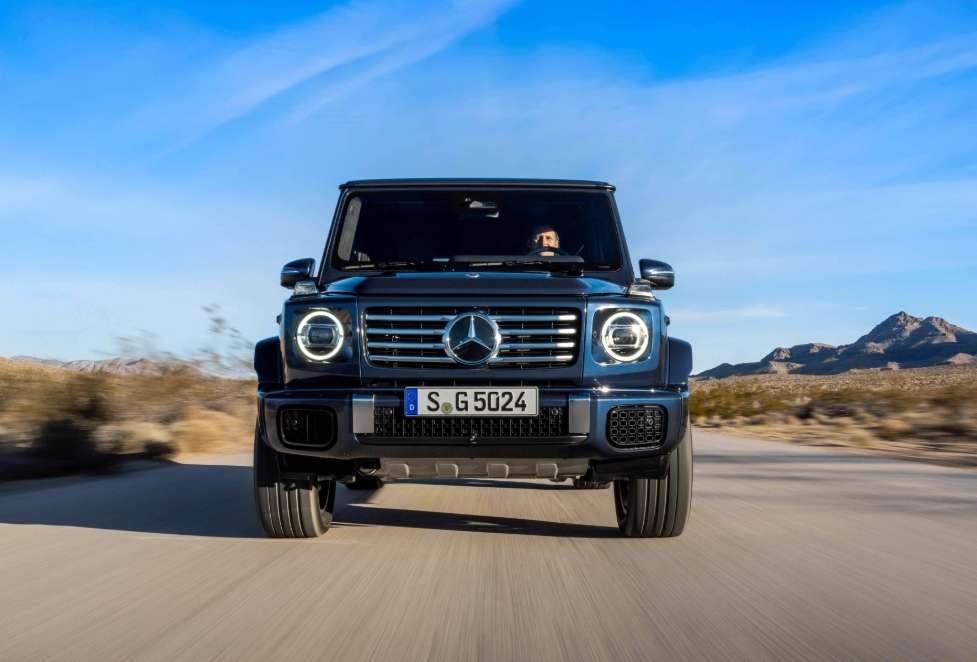Mercedes Profits Plunge 40% After Price War
Advertisements
The automotive industry in China is experiencing what can only be described as a battlefield in 2024. The fierce competition between traditional internal combustion engine vehicles and their electric counterparts has created a pricing war like no other. The tipping point of this tumultuous conflict was ignited by none other than Elon Musk, with Tesla's aggressive price cuts, setting off a chain reaction that has left many manufacturers scrambling to adapt. As the dust settles, it is evident that this price war has fundamentally altered the market dynamics in China, leaving even prestigious brands like Mercedes-Benz, BMW, and Porsche grappling with the effects.
Once known for its high-end allure and quality, Porsche is among the luxury brands now feeling the heat. In 2024, it has forced the hand of its pricing strategy, abolishing its tradition of optional add-ons at premium prices, leading to some models being discounted to almost 60-70% off their original prices. This dramatic drop in price is shocking, allowing consumers to purchase cars that once seemed unattainable for prices as low as 400,000 CNY (approximately $57,000). Such shifts demonstrate the intense competitive climate in which these companies now find themselves embroiled.
In this battle devoid of conventional weapons, the reality is that the price war often leaves no clear victor. Instead, the priority for car manufacturers in an environment characterized by such hyper-competition is survival. The ability to maintain sales, cash flow, and market share is crucial, as losing a foothold in this volatile arena renders discussions on winning or losing irrelevant. Consequently, many companies are facing the harsh reality of price wars with reluctance but also a sense of urgency to respond.

The recent financial report from Mercedes-Benz illustrates the profound impact of this price war on its operations. In 2024, the company reported total revenues of 145.6 billion euros, which translates to roughly 1105.7 billion CNY—a 4% decline compared to the previous year. Meanwhile, the company's EBIT, or earnings before interest and taxes, plummeted by a staggering 60.61 billion euros, down 31% year-over-year. Notably, the profitability of its passenger car division faced a catastrophic drop of 40.5%, with gross margins slipping to 19.6%. This marks the first time in four years that the annual gross margin percentage has dipped below 20.
Sales figures paint a similarly bleak picture. Globally, Mercedes-Benz sold 1.9834 million vehicles in 2024—a 3% decline, which is a loss of approximately 60,648 units. However, the situation appears even more daunting within the Chinese market, where sales fell to 683,600 units, a 7.3% drop amounting to about 54,000 fewer cars sold. In the fiercely competitive segment for fully electric vehicles, Mercedes experienced an alarming 23% drop in sales. While the absolute decline in units sold may not seem overwhelming, the resultant profit drop of 50.5% starkly illustrates the impact of the price war on the company’s bottom line.
It is noteworthy that while the Chinese market accounts for a substantial 34.5% of Mercedes' global unit sales, it represents only 15.89% of the company's total revenue. This sharp contrast highlights the significant ramifications of the pricing war on the brand’s financial health in this key market.
In light of the severe profit decline, Mercedes-Benz has had to implement a variety of measures aimed at cutting costs and finding alternative revenue streams. For instance, the company has announced plans to reduce its global workforce by 20,000 employees by the end of 2025 as a means of alleviating financial strain. Alongside this, Mercedes is looking to collaborate more deeply with suppliers to aim for reductions of over 10% in component costs, all while seeking comprehensive optimization of its production processes to economize at every step.
Moreover, the automaker is actively strategizing to introduce new models to remain competitive in the marketplace, with plans to develop a range of fully electric, plug-in hybrid, and high-performance vehicles. In an assertive move, Mercedes is determined not to concede defeat in China and has announced plans to unveil multiple models tailored specifically for this market over the next three years, including a fully electric MPV and a long-wheelbase CLA, aiming to reclaim its competitive edge.
Nonetheless, Mercedes faces a formidable challenge in its electric transition. Its recent strategic shift to refocus on traditional fuel vehicles raises questions amidst a rapidly evolving global push towards electrification. If Mercedes cannot swiftly break through barriers in electrification and smart technology, catching up to its competitors will be indispensable to reviving its former glory. As the market continues its fast-paced evolution, only time will tell if Mercedes can find its footing and thrive amid the pressures of this fierce competition and the wave of electrification.
Leave a Comment